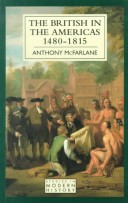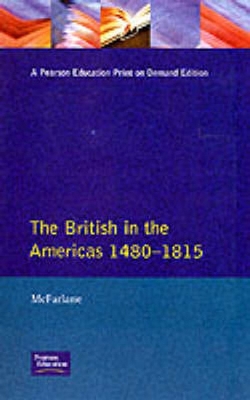Studies In Modern History
2 total works
The purpose of this book is to provide students and non-specialist readers with a brief, integrated account of British involement in the Americas, from the entry of the English into the New World in the late 15th century to the disintegration of the British and other Euro-American empires in the late 18th and early 19th centuries. Based on secondary sources, the study aims to acheive a synthesis which embraces the developments of colonies in the whole of Anglo-America, throughout the British territories which stretched from the Carribean to Canada. This synthesis is structured chronologically, in order to provide a narrative framework for understanding the origins and evolution of British colonialism, from the antecedents of empire in the Tudor period to the aftermath of empire following the American Revolution. This text aims to provide not simply an account of Anglo-American colonial development, but to blend narration of the major moments and movements in its evolution with an anlysis of the major structures of colonial economy and society both in North American and the Carribbean.
In addition, it seeks to set the Anglo-American world in the broader background of Euro-American colonialism, both by pointing to similarities and differences between Britain and its major European rivals, particularly Spain, and by drawing attention to the part that rivalries between European powers played in the expansion of Britain's empire. These comparisons indicate how British colonization enmeshed with, and related to, the larger process of European expansion; they also provide a perspective on the peculiarities of British America.
In addition, it seeks to set the Anglo-American world in the broader background of Euro-American colonialism, both by pointing to similarities and differences between Britain and its major European rivals, particularly Spain, and by drawing attention to the part that rivalries between European powers played in the expansion of Britain's empire. These comparisons indicate how British colonization enmeshed with, and related to, the larger process of European expansion; they also provide a perspective on the peculiarities of British America.
Of northern European nations, the British had the greatest impact on the Americas. Their history there embraces far more than the colonies that became the United States: England had been in the New World for a century before those colonies were established, and the British presence long outlived their loss. This integrated account of that involvement spans the entire arc of British territories from the Caribbean to Canada, and the entire period from the first appearance of the English to the disintegration of the British and other Euro-American empires. A fascinating story, engrossingly told, it fills a major gap in current historiography.

